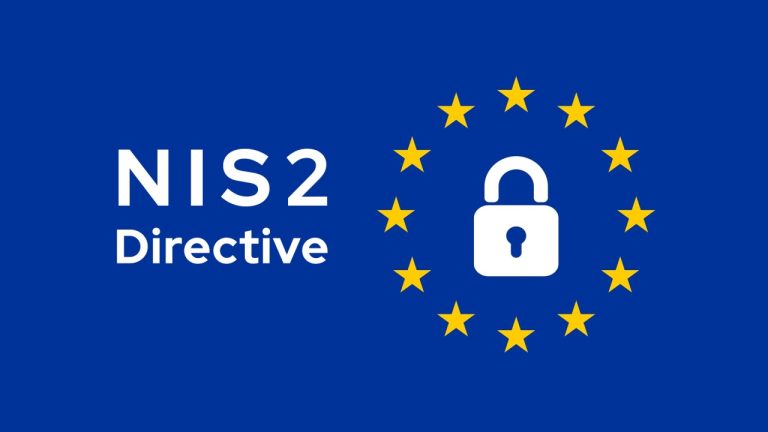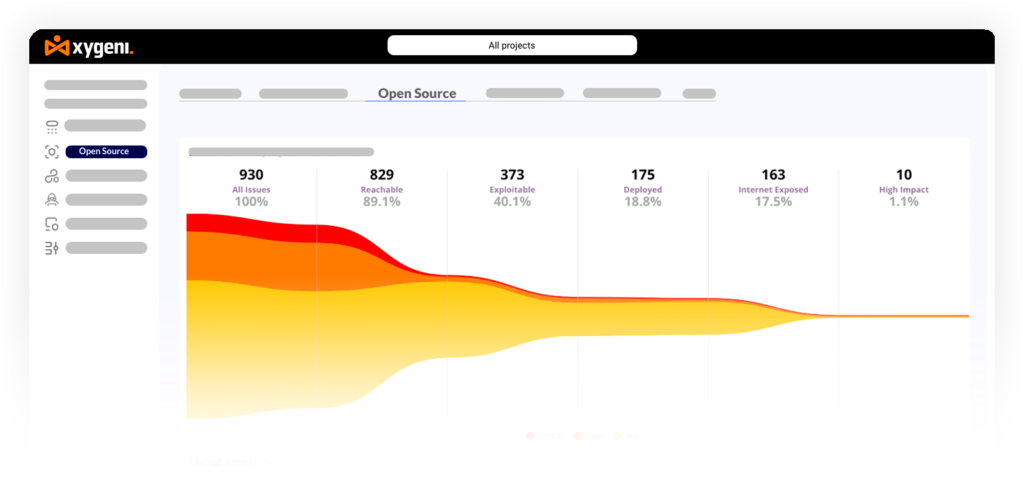NIS2 (Network and Information Security Directive) became a pivotal regulation for organizations within the European Union (EU). Its primary aim: strengthen cybersecurity frameworks and protect critical infrastructure. NIS2 directive mandates stringent cybersecurity practices, affecting (as you will see later on) a broad range of industries and sectors. NIS2 compliance is a legal requirement and an essential part of a strategic approach to ensuring resilience against escalating cybersecurity challenges. In this article, we will take a look at who is impacted by NIS2, why you should care about compliance and how can you simplify the compliance path.
But What Is NIS2 exactly?
NIS2 Directive is based on the initial NIS (Network and Information Security) Directive, published in 2016 to improve cybersecurity in the EU in key sectors. But as cyber threats have evolved, so have the needs for an NIS, and now, it needs to be adjusted in scope to reflect the vulnerabilities we are increasingly seeing. The NIS2 directive brings a more comprehensive set of cybersecurity requirements followed by increased levels of risk management, reporting, and accountability standards.
Unlike its predecessor (Directive (EU) 2016/1148 (‘NIS-D’), NIS2 is no longer limited to ‘essential’ entities only, rather additionally capturing ‘important’ entities, offering very broad coverage across industries’. This classification is important because it shows higher digital reliance in other sectors than traditional critical infrastructure such as healthcare, finance, energy, transport, and digital service providers.
Who Is Affected by NIS2?
The NIS2 directive extends the scope of its original predecessor, the NIS, greatly expanding the number of organizations that fall under the directive, and splitting them into two categories of scope — Essential Entities and Important Entities.
- Essential Entities: providers of services, necessary for the continuity of societal and economic functions, such as healthcare, water, energy, transportation, and public administration. Essential Entities are subject to the highest compliance requirements of NIS2 (risk management, incident reporting, and monitoring of security on essential systems) because the societal consequences of disrupting their services would be severe.
- Important Entities: this category now includes a wider range of industries, such as postal services, digital infrastructure, food production, and chemical processing. Although the compliance requirements for these entities are somewhat less rigorous than those for Essential Entities, they are still required to meet strict cybersecurity standards to protect operations that are vital to economic stability and public safety.
A bit more on that…
A key feature of NIS2 is its broadened scope, which now encompasses organizations that were previously excluded from cybersecurity regulations. Many businesses that were not obligated to follow such regulations must now adhere to NIS2. For example, digital platform operators—such as e-commerce firms, social networks, and cloud infrastructure providers—are included due to their critical role in facilitating the operations of other companies. The inclusion of these platforms and infrastructures under NIS2 underscores the directive’s aim to strengthen the resilience of digital services, given their extensive reliance across multiple sectors.
Moreover, NIS2 also covers internet and telecommunications providers, IT security vendors, and hardware manufacturers whose products are vital to critical infrastructures. This marks a significant shift, as these sectors are essential for ensuring secure and reliable networks and systems throughout the EU. By incorporating these entities, NIS2 seeks to build a unified cyber security ecosystem that safeguards not only the primary providers of essential services but also the wider network of technology and service suppliers that underpin these infrastructures.
The financial services sector, which includes banks, insurance companies, and various financial institutions, is now subject to NIS2. While many of these organizations were already governed by stringent cybersecurity regulations, NIS2 introduces an extra set of requirements that align them more closely with comprehensive critical infrastructure security standards. By extending its coverage to the financial services sector, NIS2 seeks to enhance protections for entities managing sensitive data and significant assets.
+ Pro Tip
Why NIS2 Compliance Is Crucial?
Compliance with NIS2 is crucial for organizations for several reasons, such as legal obligations, improved security, and safeguarding reputation. Here are some key reasons why NIS2 compliance is important:
1. Mitigating Risk in an Evolving Threat Landscape
The frequency, complexity, and severity of cyber-attacks have escalated in recent years, threatening not only data security but also operational continuity. NIS2 requires organizations to establish robust cybersecurity risk management practices, ensuring preparedness for various cyber threats. By adhering to NIS2, companies build a stronger defensive posture, minimizing potential disruptions from attacks.
2. Avoiding Legal & Financial Penalties
Non-compliance with NIS2 can lead to substantial financial penalties and legal consequences. The directive requires each EU member state to levy fines on organizations that do not adhere to its stipulations, with fines potentially reaching several million euros based on the severity and effect of the incident. Complying with these requirements helps protect against these financial risks and fosters a culture of proactive cybersecurity.
3. Strengthening Trust and Reputation
Public and private sector organizations are assessed based on their capability to safeguard their customers’ and clients’ information. Security breaches can significantly harm an organization’s reputation, resulting in diminished trust among stakeholders. Adhering to NIS2 demonstrates a dedication to top-tier cybersecurity standards, enhancing the organization’s credibility.
4. Facilitating Incident Response and Reporting
NIS2 establishes strict incident reporting requirements, mandating organizations to inform authorities about significant incidents within 24 hours. This enhanced transparency supports quicker detection and response to cyber incidents, which is advantageous for both the organization and the wider cybersecurity community. By promoting a culture of openness, NIS2 seeks to strengthen cross-border collaboration and knowledge-sharing in cybersecurity across various sectors.
Watch our SafeDev Talk Episode on DORA Compliance to learn more about other regulations affecting the EU!
Key Requirements for NIS2 Compliance
NIS2 prescribes specific requirements that organizations must meet to achieve compliance:
Risk Management and Resilience
Organizations must assess cybersecurity risks and implement adequate security measures. This includes policies for access control, data encryption, and incident response planning.
Incident Notification and Response
NIS2 requires organizations to report security incidents within a specific timeframe and conduct post-incident analyses to prevent recurrence.
Governance and Accountability
Entities must ensure that leadership is involved in cybersecurity, implementing clear roles and responsibilities for overseeing cyber risk management.
Supply Chain Security
Recognizing that third-party vendors and partners can introduce vulnerabilities, NIS2 emphasizes supply chain security. Organizations must assess the cybersecurity practices of suppliers, particularly in software and cloud services. Bear in mind that in 2022, 34% of data breaches in the financial services sector were attributed to third-party vendors.
Continuous Monitoring and Threat Intelligence
Maintaining up-to-date threat intelligence and monitoring systems is crucial to detect and respond to potential attacks effectively. NIS2 encourages proactive threat intelligence sharing among entities within critical sectors.
Key Features of Xygeni for NIS2 Compliance
- Automated Compliance Management: Xygeni streamlines the compliance management process by continuously monitoring and evaluating an organization’s security posture about NIS2 standards. This automation alleviates the workload for security teams, facilitating quicker compliance and consistent alignment with regulatory changes.
- Threat Detection and Response: Xygeni’s platform is equipped with sophisticated threat detection features powered by machine learning, which identifies suspicious activities and potential threats in real time. This capability is essential for NIS2 compliance, allowing organizations to swiftly detect and respond to threats, as required by the directive.
- Supply Chain & Software Composition Analysis: Xygeni offers tools for managing and monitoring the security of an organization’s supply chain, a critical component of NIS2 compliance. Its software composition analysis feature helps companies assess vulnerabilities in third-party components, ensuring a secure software supply chain.
- Incident Reporting: Xygeni streamlines the incident reporting process by offering straightforward workflows for documentation and regulatory notifications, helping organizations adhere to the NIS2 reporting standards. Its forensic features allow for a thorough analysis of incidents, facilitating post-incident evaluations and ongoing improvements.
- Governance and Role Management: Xygeni enables role-based access control and governance frameworks, simplifying the process for organizations to define and enforce cybersecurity roles, responsibilities, and policies as mandated by NIS2.
To sum up – Start minimizing Cyber Risks
NIS2 compliance represents both a legal obligation and strategic relevance for organizations in essential sectors throughout the EU. As cyber threats grow in both frequency and complexity, aligning with NIS2 not only reduces risks but also strengthens organizational resilience, boosts trust, and ensures accountability.
Xygeni’s comprehensive security platform provides an effective solution for managing the challenges of NIS2 compliance, ranging from automated compliance management to advanced threat detection and incident response. By utilizing tools like Xygeni, organizations can optimize their compliance processes, protect critical infrastructure, and cultivate a strong cybersecurity culture. Enhance your overall cybersecurity resilience by taking the right measurements to minimize cyber risks.









